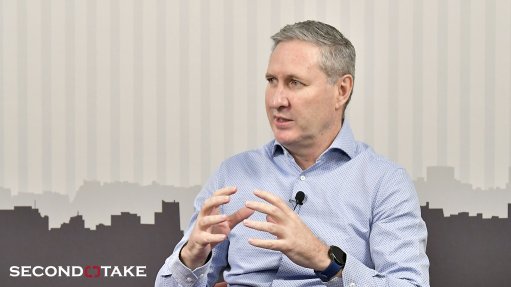Let's Bond Over Green Bonds




Bridgett Majola, Director: Banking and Finance
Kanya Xundu, Candidate Attorney
Pooja Pundit, Candidate Attorney at international law firm CMS South Africa
This article has been supplied as a media statement and is not written by Creamer Media. It may be available only for a limited time on this website.
By Bridgett Majola, Director: Banking and Finance; Kanya Xundu, Candidate Attorney; and Pooja Pundit, Candidate Attorney at international law firm CMS South Africa
As the world grapples with the urgent need to reduce carbon emissions and mitigate the effects of climate change, green finance has emerged as a powerful tool for driving investment in sustainable energy and infrastructure. Green bonds have gained traction as a means of raising capital for climate mitigation projects while providing investors with a source of reliable return on their investment.
The bonds can help move forward South Africa’s Just Energy Transition (JET) goals by reducing debt burdens, attracting international capital, and offering a competitive advantage to access a large pool of international investors focused on sustainability. They can also be a vital tool in harnessing the increasing investor appetite for investments with green and social impacts.
Why green bonds?
Green bonds are bonds used to raise capital for projects that have a positive impact on the environment, ranging from renewable energy plants to energy-efficient buildings, sustainable agriculture, and clean transportation.
Green bonds are typically subject to voluntary or mandatory certification frameworks, such as the Green Bond Principles established by the International Capital Markets Association (ICMA), which recommend that a form of certification be used. Green bonds have thus gained popularity as a means of attracting investment from institutional and retail investors who are seeking to align their investments with their environmental values and support the transition to a just and low-carbon economy.
More South African investors need to think green
The reliance on conventional energy generation has proven to be unsustainable as the demand for electricity is higher than the supply of the national electrical grid. Renewable energy offers a reliable and sustainable power supply, fuel diversification, and enhanced energy security while reducing the risk of fuel spills and dependence on imported fuels.
South Africa has a United Nations-mandated obligation to produce more green energy, as stated in UN Goal number 7, which aims to ensure affordable, reliable, sustainable, and modern energy for all to achieve global climate goals.
South Africa's JET initiative, in turn, aims to achieve net zero carbon emissions by 2050 with increased sustainable jobs. JET seeks to ensure a gradual movement towards lower carbon technologies without negatively impacting society, jobs, and livelihoods.
Various South African financial institutions have already issued green bonds. In February 2021, the Development Bank of Southern Africa (DBSA) issued its first €200m green bonds, structured in alignment with the DBSA's Green Bond Framework and governed by French law. The bonds were issued through a private placement with the Agence Française de Développement and the proceeds were applied to projects that contribute to climate mitigation and/or adaptation, aligned with the UN Sustainable Development Goals and South Africa's National Development Plan's objective of a low carbon economy.
Standard Bank and Investec have also issued green bonds, the latter in April 2022, backed by five flagship renewable energy projects, including solar and wind projects, which offer a stable source of power generation for the country.
In addition, in June 2020, South Africa's National Treasury set up the Sustainable Finance Working Group to establish the norms and standards that are needed for the development of sustainable finance instruments and products in South Africa. Its objectives are to (a) map the universe of such instruments and products globally, (b) understand the relevance, appetite for, and applicability of these instruments to the SA financial markets; and (c) recommend the enabling environment for sustainable financing to grow and support investment in sustainable development. Their activities are therefore crucial for the further development of a green bond market in South Africa.
Beware! Greenwashing ahead
Green bond issuers and investors are not immune to allegations of greenwashing, the term used to describe a scenario where bonds are labelled as "green", although in practice their proceeds are not used for projects that promote environmental sustainability.
To address this challenge, ICMA and the Climate Bonds Initiative (CBI) have provided guidelines that describe the criteria and standards that must be met by the issuing entity to ensure that the funds raised through the bond are used for environmentally sustainable projects.
These principles aim to provide transparency, accountability, and credibility to the green bond market, and to ensure that the funds raised are used for the purpose intended. These criteria pose another challenge for South Africa, namely identifying environmentally sustainable projects that are economically viable and meet the stringent criteria set forth in green bond principles.
A green future
South Africans are no stranger to the impacts of climate change, recurrent blackouts and water scarcity. Green bonds provide a promising financing option to facilitate the transition towards a low-carbon economy.
Through investments in renewable energy, initiatives that promote energy efficiency, and sustainable agriculture, companies and financial institutions can not only support a reduction in carbon emissions but also find relief in cost-savings and benefit from an enhanced reputation.
Financial institutions and finance lawyers play a critical role in facilitating the growth of the green bond market. By collaborating with stakeholders in the financing sector, finance lawyers can support the growth of the green bond market and pioneer a transition to a zero-carbon economy.
With the success of some green bonds that have been issued in South Africa, there is a glimmer of hope for the country’s energy and environmental challenges. There may just be a real light at the end of the tunnel indeed. While the grey listing may seem like a formidable foe, with the right investment and legal support and framework, we may find that green is indeed the new black.
Comments
Press Office
Announcements
What's On
Subscribe to improve your user experience...
Option 1 (equivalent of R125 a month):
Receive a weekly copy of Creamer Media's Engineering News & Mining Weekly magazine
(print copy for those in South Africa and e-magazine for those outside of South Africa)
Receive daily email newsletters
Access to full search results
Access archive of magazine back copies
Access to Projects in Progress
Access to ONE Research Report of your choice in PDF format
Option 2 (equivalent of R375 a month):
All benefits from Option 1
PLUS
Access to Creamer Media's Research Channel Africa for ALL Research Reports, in PDF format, on various industrial and mining sectors
including Electricity; Water; Energy Transition; Hydrogen; Roads, Rail and Ports; Coal; Gold; Platinum; Battery Metals; etc.
Already a subscriber?
Forgotten your password?
Receive weekly copy of Creamer Media's Engineering News & Mining Weekly magazine (print copy for those in South Africa and e-magazine for those outside of South Africa)
➕
Recieve daily email newsletters
➕
Access to full search results
➕
Access archive of magazine back copies
➕
Access to Projects in Progress
➕
Access to ONE Research Report of your choice in PDF format
RESEARCH CHANNEL AFRICA
R4500 (equivalent of R375 a month)
SUBSCRIBEAll benefits from Option 1
➕
Access to Creamer Media's Research Channel Africa for ALL Research Reports on various industrial and mining sectors, in PDF format, including on:
Electricity
➕
Water
➕
Energy Transition
➕
Hydrogen
➕
Roads, Rail and Ports
➕
Coal
➕
Gold
➕
Platinum
➕
Battery Metals
➕
etc.
Receive all benefits from Option 1 or Option 2 delivered to numerous people at your company
➕
Multiple User names and Passwords for simultaneous log-ins
➕
Intranet integration access to all in your organisation



















